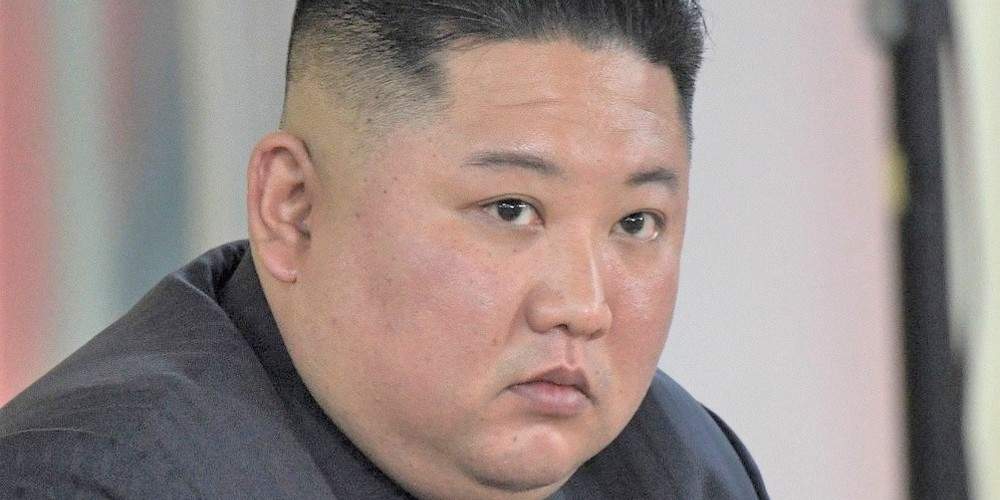The United States and South Korea warned that any nuclear attack by North Korea would be met with an “overwhelming and decisive” response following North Korea’s adoption of a first-use nuclear doctrine last week.
The two allies issued a joint statement after a vice ministerial-level meeting of the Extended Deterrence Strategy and Consultation Group (EDSCG) on Friday, in which they expressed “serious concern” over North Korea’s nuclear law.
The U.S. and South Korea said that they would use “all available levers,” including diplomatic, informational, military, and economic instruments, to strengthen deterrence against the nuclear threat posed by North Korea.
“The United States committed to strengthen coordination with [South Korea] to continue to deploy and exercise strategic assets in the region in a timely and effective manner to deter and respond to [North Korea] and enhance regional security,” it stated.
They referred to the combined training of F-35A fighter jets in July and the upcoming deployment of the USS Ronald Reagan Carrier Strike Group in the region as “a clear demonstration of such U.S. commitment.”
“The United States and [South Korea] reaffirmed that [a North Korean] nuclear test would be met with a strong and resolute whole-of-government response,” it stated.
The two allies agreed to enhance alliance strategic readiness through improved information sharing, training, and exercises. They pledged to cooperate closely and “stand ready for all possible scenarios.”
North Korea’s Nuclear Law
North Korea last week passed a new law allowing it to conduct a nuclear strike “automatically” against any “hostile forces” posing an imminent threat to the nation, according to state mouthpiece Korean Central News Agency (KCNA).
The law states that North Korea will employ nuclear weapons only as a last resort, but that nuclear forces will be the primary policy of national defense to protect the country’s sovereignty, territorial integrity, and people.
North Korean leader Kim Jong Un said the law will make North Korea’s status as a nuclear weapons state “irreversible,” according to KCNA.
Survival Beef on sale now. Freeze dried Ribeye, NY Strip, and Premium beef cubes. Promo code “jdr” at checkout for 25% off! Prepper All-Naturals
In his speech, Kim referred to the United States as North Korea’s “nuclear enemy state” and blamed South Korea for aggravating military tensions in the region with its joint defense posture with Washington.
White House press secretary Karine Jean-Pierre on Sept. 9 reiterated that Washington holds “no hostile intent” toward North Korea and continues to pursue diplomacy.
She stated that Washington is willing to meet without preconditions, but North Korea has ignored the efforts.
South Korean President Yoon Suk-yeol had offered to provide North Korea with what he called an “audacious plan” that would “significantly improve the country’s economy and its people’s livelihoods in stages” in exchange for complete denuclearization.
- Preserve your retirement with physical precious metals. Receive your free gold guide from Genesis Precious Metals to learn how.
But North Korea rejected Yoon’s offer. Kim said that there will be no denuclearization talks, negotiations, or “bargaining chips” in that process.
Article cross-posted from our premium news partners at The Epoch Times.
Controlling Protein Is One of the Globalists’ Primary Goals
Between the globalists, corporate interests, and our own government, the food supply is being targeted from multiple angles. It isn’t just silly regulations and misguided subsidies driving natural foods away. Bird flu, sabotaged food processing plants, mysterious deaths of entire cattle herds, arson attacks, and an incessant push to make climate change the primary consideration for all things are combining for a perfect storm to exacerbate the ongoing food crisis.
The primary target is protein. Specifically, they’re going after beef as the environmental boogeyman. They want us eating vegetable-based proteins, lab-grown meat, or even bugs instead of anything that walked the pastures of America. This is why we launched a long-term storage prepper beef company that provides high-quality food that’s shelf-stable for up to 25-years.
At Prepper All-Naturals, we believe Americans should be eating real food today and into the future regardless of what the powers-that-be demand of us. We will never use lab-grown beef. We will never allow our cattle to be injected with mRNA vaccines. We will never bow to the draconian diktats of the climate change cult.
Visit Prepper All-Naturals and use promo code “veterans25” to get 25% off plus free shipping on Ribeye, NY Strip, Tenderloin, and other high-quality cuts of beef. It’s cooked sous vide, then freeze dried and packaged with no other ingredients, just beef. Stock up for the long haul today.


